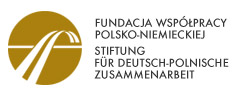Women's Rio+20 Good Practice Award
Grassroots women from around the world received prestigious "Women's Rio+20 Good Practice Awards" from eight women Ministers in 21 June Ceremony and Reception at Rio Centro
22.06.2012 |WECF news

Minister Tereza Campello of Brasil announcing the first winner
On June 21st, during the Rio+20 Summit on Sustainable Development in Rio de Janeiro, Brazil, eleven projects were awarded with the Women Rio+20 Best Practice Award. The Women Rio+20 award highlights the essential role women already play in making our economies more equitable and sustainable.
The awards ceremony was remarkable not only in the participation of eight female high-level ministers from Mexico, South Africa, Brazil, Nigeria, Denmark, Iceland and Switzerland, but also, and quite centrally, in the compelling success stories of each of the prize winner’s local projects.
The prize process was agreed to at the February 2012 annual meeting in Nairobi, Kenya of the Network of Women Ministers and Leaders for the Environment where all agreed that Rio+20 presented an ideal time to launch an awards program to acknowledge exemplary work for sustainable development of grassroots women at the local level. Women in Europe for a Common Future (WECF) is a supporting member of the network and was asked to take the lead in soliciting applications. 150 applications were received– and WECF Executive Director Sascha Gabizon said “It was very difficult to choose as all were excellent”. On June 21st in Rio, 6 first place and 5 each second and third place (16 total) award winners were announced with a majority of the winners having a representative present at the ceremony.
In welcoming the crowd of 250 men and women in attendance, H.E. Ms. Sandra Herrera, Deputy Minister of Environmental Regulation and Promotion at the Ministry or Environment and Natural Resources of Mexico (and co-chair of co-organizer The Network of Women Ministers and Leaders for the Environment) said:
“This is a good opportunity to not only recognize the work that these outstanding women have done in local communities but also the work that is done by thousands of millions of women in their local communities and in their families every day all around the world.” She continued “we need to understand the linkages between gender and sustainability and to ensure the participation of women in environment and sustainable development at the national, regional and local level.”
The other co-chair of the Network of Women Ministers and Leaders for the Environment, Deputy Minister for Water and Environmental Affairs of South Africa, H.E. Ms. Rejoice Mabudafhasi, added her congratulations to the winners present and said:
“You don’t need a lot of resources, you don’t need a lot of money to make a change in the lives of women. These women who are receiving the awards have transcended all the challenges and still make a difference in sustainable development.” She continued,
“If they would start telling us the stories of what they are doing, we would all wonder how are they managing. They are not only protecting the environment but also helping to eliminate poverty.”
Also present was Ms. Amina Mohammed, the Deputy Director of UNEP who said:
““I would like to say how proud we are to be associated with this process. This awards ceremony has come at an extremely opportune time – as we reflect on 20 years since Rio and the achievements that have been made by women in environment and development [we see that] this is a welcome change from the norm - where millions of women’s efforts, their contributions and their achievements remain invisible and are not recognized in any way.” Mohammed went on to say that she hoped this would become an annual event and that she would work to convince UNEP to continue this “excellent work with women” by providing both “financial and human resources to this noble cause.”
The final speaker who offered welcoming remarks was Dr. Christoph Beier, Vice-Chair of the Management Board of the Deutsche Gesellschaft fur Internationale Zusammernarbeit (GIZ) GmbH
“We feel that Gender Equality is such an important part – in fact, a prerequisite for sustainable development – and that we are all here in a very good place today, we have to do much more for gender equality in order to achieve our goals for sustainable development.” He continued,
Following the opening remarks, awards were presented individually to each of the first place winners by women ministers including H.E. Ms. Tereza Campello, Minister of Social Development and Combatting Hunger, Brazil; H.E. Ms. Hadiza Ibrahim Mailafia, Minister for Environment, Nigeria; H.E. Ms. Svandis Svavarsdottir, Minister for the Environment, Iceland; H.E. Ms. Lulu Xingwana, Minister for Women, Children and People with Disabilities, South Africa; and H.E. Ms. Doris Leuthard, Minister for Environment, Traffic, Energy and Communication, Switzerland, as well as by the Network’s co-chairs.
First place winners received a medal, a certificate, a gift and, most importantly, a check for $1,000 (USD) in honor of their achievement. The five categories of competition were: Food Sovereignty, Climate Adaptation, Decent Jobs and Health, Water and Sanitation and Sustainable Energy.
Each of the first place winners offered their thanks with remarks of their own, but there is no question that the general feeling of the awards winners was best summed up by the first prize winner for Water and Sanitation - Ms. Rehema Bavuma Namagenda, of the Kitosia Women Development Trust, Uganda, who said
“I am very grateful for this award. And I just want to remind you that women are about change in their communities – just put them in charge - show them where the resources are – give them the opportunity and they will turn this world upside down!”
The Full List of Winners of the Women’s Rio+20 Good Practice Awards
Announced: 21 June 2012
At the United Nations Rio+20 Conference on Sustainable Development
Rio de Janeiro, Brazil
First Place:
Food Sovereignty (shared prize)
Ms. Kaba Djakagbe, Director, Guinean Association for Women’s Burden Alleviation
Guinea
Ms. Maria Diocelinda Iza Quinatoa, Organization of Indigenous and Peasant Women Planting Hope
Ecuador
Climate Adaptation
Ms. Ruth Serech Icu, The Association of Coordination for Women’s Integral Development, (CODIMM) La Asociación de Coordinación de Desarrollo Integral de Mujeres (CODIMM)
Guatemala
Decent Jobs and Health
Ms. Claudette De Costa Ferreira, Recycling to Live Cooperative (Cooperativa Reciciando para Vivir),
Brazil
Water and Sanitation
Ms. Rehema Bavuma Namagenda, Kitosia Women Development Trust, Uganda
Sustainable Energy
Ms. Kalyani Raj, All India Women’s Conference,
India
Second Place:
Food Sovereignty
Manyaane Emily Tjale
Land Access Movement of South Africa
South Africa
Climate Adaptation
Claudia Amegankpoe
ECO-ECOLO, Benin
Decent Jobs and Health
Nguyen Thi Phuong Nga
The Centre for Sustainable Rural Development – SRD
Trung tam Phat trien Nong thon Ben vung
Vietnam
Water and Sanitation
Ms. Ashu Saxena
Energy Environment and Development Society Bhopal
India
Sustainable Energy
Ms. Katherine Lucey
Solar Sister
Uganda
Third Place:
Food Sovereignty
T.K. Omana
Rural Agency for Social and Technological Advancement (RASTA),
India
Climate Adaptation
Nadejda Vakhitova
Women of Mountains Group (WMG)
Uzbekistan
Decent Jobs and Health
Mme. Katim Alaoui
Mohammed VI Foundation for Research and Preservation of the Argan Tree
(Fondation Mohammed VI Pour La Recherche et La Sauvegarde De L’Arganier)
Morocco
Water and Sanitation
Ms. Nabila Idris
Community Action
Bangladesh
Sustainable Energy
Margaret C. A. Owino
Kenya
Solar Cooker International East Africa
Read their stories in the booklet: Women's Rio+20 Good Practice Award - Women's Contributions to Sustainable and Equitable Economies

The award aimed to raise awareness about existing best practices, as exemplified by women as leaders in sustainable development from developing countries, and:
- Show-case best practices from women in developing countries on sustainable and equitable development to policy makers, media and the general public
- Raise awareness among policy makers that women’s best practices for development need enabling policy frameworks with specific gender targets and indicators
- Enable grassroots women to present their solutions and priorities to international actors and thus ensure that women’s perspectives, needs and contributions are strongly reflected in the policy outcomes of the Rio+20 conference
- Publish the best practices and their key success factors and disseminate widely, allowing them to inspire and be replicated by women and men around the world
The awards focus on women-led initiatives in five areas:
- food sovereignty
- climate adaptation,
- water & sanitation
- decent jobs & health
- sustainable energy
Huairou network Three fellow women leaders from the Huairou network were presented with First and Second prize awards for their Good Practices in Food Sovereignty and Climate Adaptation. Ruth Serech from Guatemala's Fundación Guatemala and Mayan Women Coordinator for Integrated Development (Coordinadora Integral de Desarrollo de Mujeres Mayas) CODIMM, and Diocelinda Iza from Ecuador's Organización de Mujeres Indígenas y Campesinas Sembrando Esperanza (OMICSE), received First Prize awards for their work in Climate Adaptation and Food Sovereignty, respectively; Emily Tjale of South Africa's group, Land Acquisition Movement of South Africa (LAMOSA), was presented with Second Prize for her work in Food Sovereignty.
The Women’s Rio+20 Good Practice Award was organised by WECF with the Women’s Major Group core partners, UNEP and the Network of Women Ministers and Leaders for the Environment.The award is funded by the German Federal Ministry for Economic Cooperation and Development (BMZ) and supported through GIZ’s programme “Promoting Gender Equality and Women’s Rights“.
Related News
Meet the Winners of the Gender Just Climate Solutions Award at COP24
On the 70th anniversary of the Universal Declaration of Human Rights, we awarded Gender Just Climate Solutions Winners at the climate negotiations in Katowice, Poland
11.12.2018
Invitation: Gender Just Climate Solutions Award 2018
10 December, COP24 Katowice
04.12.2018
Getting to the Future We Want
4-7 November, Brussels: European Environmental Bureau’s (EEB) Annual Conference
12.11.2018
GoodFood4All
WECF and partners all over Europe start GoodFood4All Campaign
06.11.2018
#Ruralwomen: join our Women2030 campaign!
15.10.2018





































